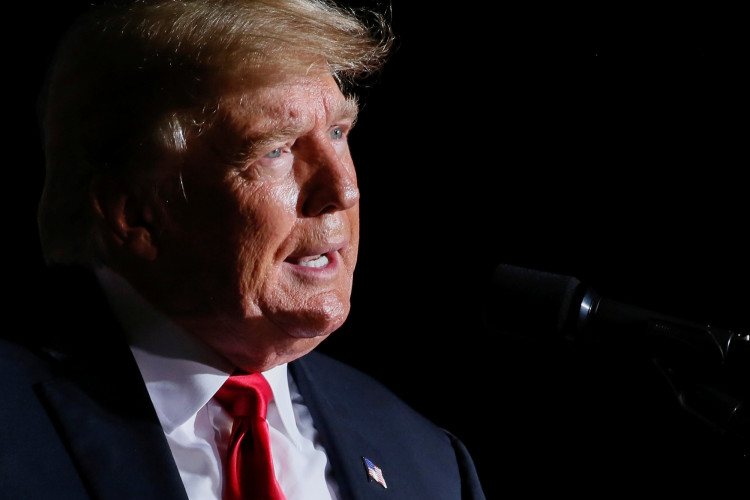A federal judge has temporarily blocked the Trump administration's broad freeze on federal grants and loans, providing relief to agencies and nonprofits that feared sudden disruptions in funding. While the administration insists that programs providing direct benefits to Americans-such as Social Security, Medicare, Medicaid, and the Supplemental Nutrition Assistance Program (SNAP)-are unaffected, the freeze has created widespread uncertainty.
The order, issued by the U.S. Office of Management and Budget (OMB), called for a temporary halt to certain federal financial assistance programs by 5 p.m. Tuesday. The directive was vague in its wording, leading to confusion among federal agencies, nonprofits, and Americans who rely on government aid.
The White House has since clarified that the freeze does not apply to programs that provide direct assistance. "Any program that provides direct benefits to Americans is explicitly excluded from the pause," the OMB stated. The administration listed Social Security, Medicare, Medicaid, Pell Grants, Head Start, and rental assistance as among the exempted programs.
However, critics argue that the lack of clarity in the memo has already caused disruptions. "I don't really understand it, and I think even people who are in positions of power don't really understand it," said Wendy Edelberg, director of The Hamilton Project at Brookings. Tad DeHaven, an analyst at the libertarian Cato Institute, questioned why the administration issued such "broad, unclear, and confusing directions."
Confusion Over Medicaid and Housing Assistance
Despite assurances that Medicaid would not be impacted, state officials reported temporary disruptions. On Tuesday, several state Medicaid programs said they were locked out of the Department of Health and Human Services' payment system. The White House attributed the issue to an "outage" rather than the funding freeze. By Wednesday, multiple state Medicaid programs confirmed they had regained access to their payment systems.
Rental assistance was also listed as exempt from the freeze, yet housing advocates remain concerned about potential consequences if the pause is prolonged. Renee Willis, interim president and CEO of the National Low Income Housing Coalition, warned that "even a short pause in funding could cause significant harm to low-income families and their communities."
Meals for Seniors and Education Programs in Question
While SNAP benefits were confirmed as unaffected, uncertainty remains over funding for senior nutrition programs like Meals on Wheels. The Older Americans Act Nutrition Program, which provides meals to millions of vulnerable seniors, could be impacted if it falls under the funding freeze.
"If the order includes the Older Americans Act, it would halt service to millions of vulnerable seniors who have no other means of purchasing or preparing meals," Meals on Wheels said in a statement. "The lack of clarity is creating chaos for providers."
Head Start, a federally funded preschool program serving nearly 800,000 low-income children, was also listed as exempt. However, the National Head Start Association (NHSA) reported that many of its grant recipients were temporarily unable to access federal funds. "At worst, this means that hundreds of thousands of families will not be able to depend on the critical services and likely will not be able to work," said NHSA Executive Director Yasmina Vinci.
Legal Challenge and Political Backlash
The funding freeze has already been challenged in court, with a federal judge issuing a temporary block on its implementation while legal arguments are considered. The lawsuit, filed by nonprofit organizations, argues that the freeze could disrupt essential services and create financial hardships for millions of Americans.
David Sacks, the Trump administration's AI and crypto policy adviser, defended the freeze, arguing that it aligns with the president's executive orders aimed at reevaluating government spending. "New administrations must review federal programs to ensure they are being executed in accordance with the law and the new President's policies," the White House memo stated.
However, the move has drawn bipartisan criticism. Edelberg warned that while the macroeconomic impact of a brief funding pause might be modest, "it will matter a whole lot to people on the other side of these expected payments. It could be the difference between having a job and not, getting evicted or affording food."
What Happens Next?
The OMB has stressed that the pause is not an "impoundment" under the Impoundment Control Act but rather a temporary measure to ensure compliance with the administration's policies. The White House has indicated that certain programs could resume quickly after review, but there is no clear timeline for when the freeze will be fully lifted.
For now, Americans who rely on federal aid programs such as Social Security, Medicare, Medicaid, and SNAP can expect their benefits to continue without interruption.




